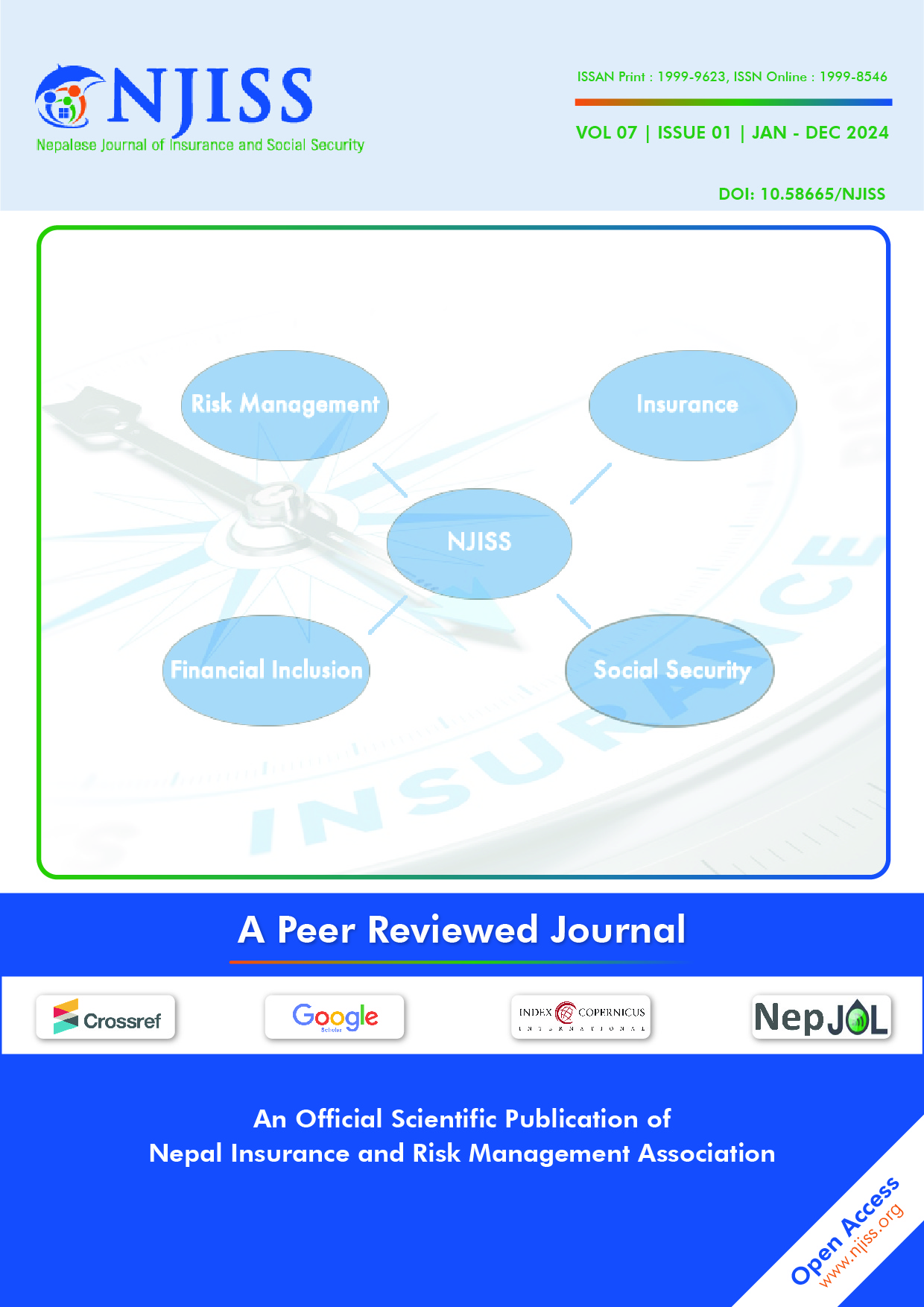Career Growth of Women Employees in Nepalese Insurance Companies: A Role of Demographic Factors
Keywords:
Advancement, demographic elements, female workforce, insurance organizationsAbstract
Purpose: Globally, the advancement of women’s careers in businesses has become increasingly significant. Professional advancement opportunities for women led to increased job satisfaction and productivity inside the organization. The primary
elements linked to the advancement of women are those related to corporations and society. Therefore, in addition to those causes, demographic considerations might also contribute to their career expansion. Acknowledging that the study endeavored to examine the effect of demographic elements on the growth of careers for female employees.
Design/methodology/approach: Descriptive and quantitative approach were used for the study. In this survey, women employed in insurance companies located in Pokhara and Kathamandu valley made up the population. A standardized survey instrument was employed to solicit the information from one hundred and sixty-three female employees using convenient sampling. An independent sample t-test and a one-way ANOVA were used to examine the data.
Findings: The findings showed that female’s careers were significantly affected by their age (F = 4.609, p-value=0.001), education level (t = 15.132, p-value=0.000), marital status (t = 8.519, p-value= 0.000) and years of service (F = 2.875,
p-value= 0.025). But the money (F = 1.393, p-value= 0.251) that female employees in insurance businesses made did not play a crucial role in their careers.
Conclusion: Beyond corporate, family, and societal factors, demographic variables such as age, marital status, years of service, and education level significantly influence the career advancement of female employees in Nepal’s insurance sector, highlighting the need for tailored strategies to address these situational elements.
Implications: The study’s findings will help organizations and policymakers continue to focus on the variables, such as women’s demographics, that affect their capability to promote in their careers. Women’s job satisfaction can influence their career promotion, which in turn has an impact on the output of a company. The study’s findings will provide some insight into the consequences of disregarding the demographic conditions that affect women.
JEL Classification: J16, M51
Downloads
Downloads
Published
How to Cite
Issue
Section
License
Copyright © Nepal Insurance and Risk Management Association

The articles in NJISS are licensed under a Creative Commons Attribution-NonCommercial 4.0 International License. This CC BY-NC license allows reusers to distribute, remix, adapt, and build upon the material in any medium or format for noncommercial purposes only, and only so long as attribution is given to the creator.
It includes the following elements:
BY - Credit must be given to the creator (authors)
NC - Only noncommercial uses of the work are permitted.

